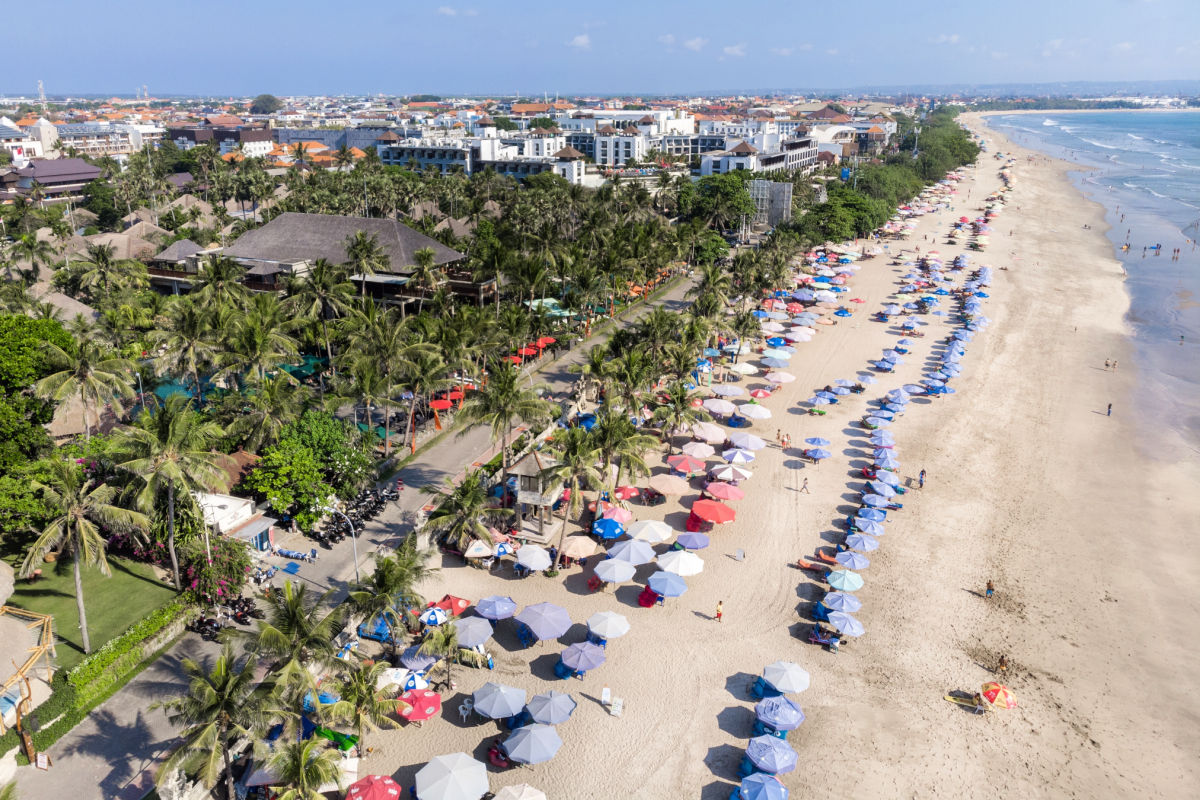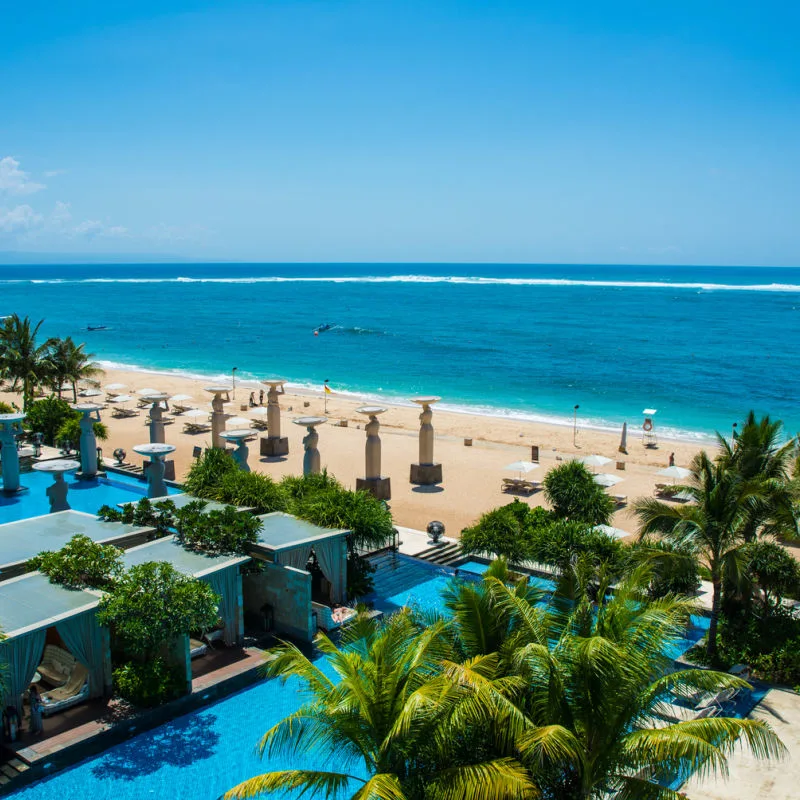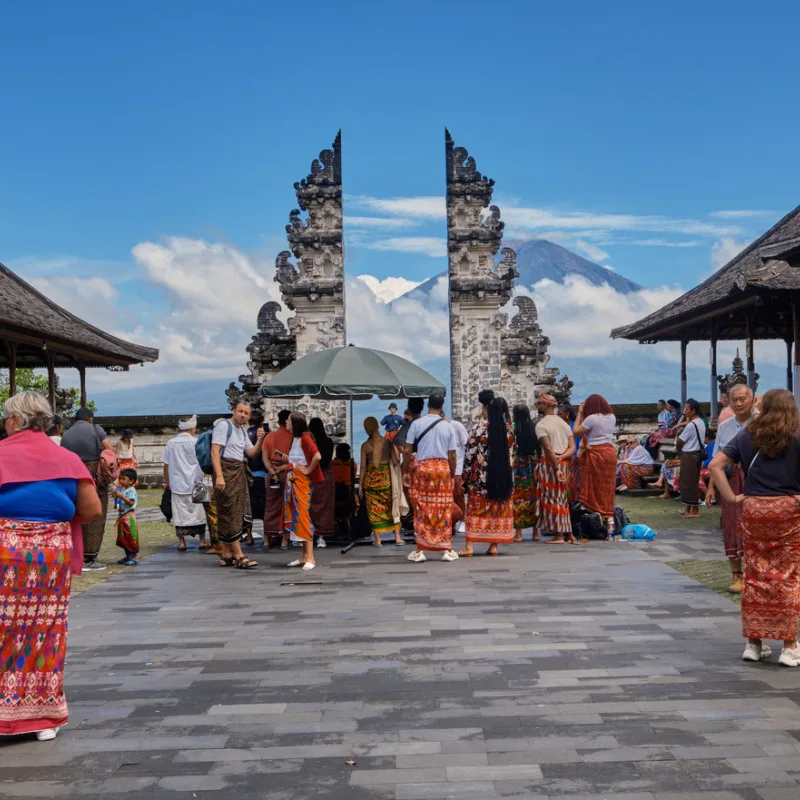Bali’s leaders are seriously considering the impact that tourism has had on the island’s culture, landscape, and economy.
As legislators create the final draft of a new moratorium that will ban the development of new hotels, resorts, villas, and entertainment venues for up to two years, Bali is collectively assessing whether measuring the volume of tourists is the most beneficial metric by which to assess success.

The number of international tourists who visited Bali between January and the end of August reached 4,465,685 million people, and it is set to reach over 7 million by the end of the year.
This is in addition to the over 200,000 foreigners registered as residing in the province. This is an increase of 22% compared to the same period in 2023.
For most businesses in the tourism sector, and indeed the Ministry of Tourism, all growth is deemed as good.
Yet some local tourism leaders have called for the sector to assess success by different means, noting that more tourists do not necessarily convert to more benefits for the island.
Ex-Deputy Governor of Bali and the Head of the Bali Hotels and Restaurants Association, Tjokorda Oka Artha Ardhana Sukawati, has called for leaders to look beyond arrival figures when assessing the impacts of tourism in Bali.
Sukawati, known locally by his nickname Cok Ace, is calling for a review of the Human Development Index ratio, life expectancy, mortality rate, and, most importantly, local people’s purchasing power to gather a more in-depth understanding of how tourism is impacting both tourists, the tourism sector and local residents.
This level of understanding will ultimately help inform how Bali can manage tourism operations province-wide, ensure that tourists have a positive experience and that local communities genuinely benefit from the growing number of visitors.
Cok Ace told reporters he wants leaders to “not only look at economic growth and average income per capita because the average income is also an accumulation with upper middle income. How much can we feel the benefits of tourism for the welfare of society?”
Made Ariandi, from the Chamber of Commerce, echoed the comments issued by Cok Ace. Ariandi, too, wants to have a more accurate picture of the economic impact tourism is having in the province.
He explained, “There is a possibility that tourists spend their money in their circle, with fellow foreigners, because many tourist accommodations such as villas are owned by foreigners.”
There is nothing explicitly wrong with foreign-owned businesses in Bali, provided they are operating above the law.
In fact, Indonesia has created a series of new visa categories that have been designed specifically to make it easier for high-wealth foreigners to invest in the country and set up businesses.
The concern many local leaders and residents have is that there are an increasing number of foreigners believed to be operating businesses outside of the law. There are also fears that the increase in foreign businesses and the comparable amount resources these entities have available to them could be outcompeting local entrepreneurs before they’ve even started out.
The misuse of Indonesian visas is under investigation by immigration officials in Bali, and a crackdown on visa abuse and foreigners breaking the law by any means has also been ordered by top government ministers.

The Indonesian Minister for Investment and Maritime Affairs, Luhut Binsar Pandjaitan, told reporters that he wants to see a stronger crackdown on foreigners abusing the system in popular destinations like Bali.
He’s also a supporter of the idea of introducing a tourism quality standard to help increase the quality of tourism offerings across Bali and encourage more ‘high-quality tourists’ to visit.

Minister Panjaitan told reporters that he feels the tide is starting to turn now that the relevant agencies are cracking down on visa misuse and unruly behavior by foreigners.
He explained, “I think this has started to run, and has started to be consolidated by Mr Sandiaga Uno [Tourism Minister], and [we question] why we accept unclean tourists. People who have problems, who make drugs, who cause trouble, who bring nude tourists, what do we do? Bali is great because of its culture, but what if it’s lost?”

Minister Panjaitan praised the efforts of Bali Immigration Officials, who have deported 157 foreigners in the year to date and detained a further 194 individuals for a range of offenses, including misuse of visas.
He added, “If we lose even 5,000 problematic tourists, that’s OK. From there, quality tourists will come, and now it seems that people are starting to listen to that and are starting to come back to travel to Indonesia.”
Remove All Ads & Unlock All Articles… Sign up for The Bali Sun Premium

Plan Your Bali Holiday:
Book The Best English Speaking Drivers For Airport Transfers & Tours
Choose From Thousands of Bali Hotels, Resorts, and Hostels with Free Cancellation On Most Properties
Book Cheap Flights To Bali
Don’t Forget Travel Insurance That Covers Medical Expenses In Bali
For the latest Bali News & Debate Join our Facebook Community
SUBSCRIBE TO NEW POSTS
Enter your email address to subscribe to The Bali Sun’s latest breaking news, straight to your inbox.
Discover more from The Bali Sun
Subscribe to get the latest posts sent to your email.

BaliEyeWitness...
Wednesday 25th of September 2024
This regular visitor (3 two month stays a year) has decided to go elsewhere next time. I will come once more to pick up my belongings from my shared villa. The things I value about Bali have been killed very rapidly many of them gone already. Masses of overdevelopment rice paddies been concreted over rude Russians everywhere. no thanks.
Shorty
Wednesday 25th of September 2024
Apologies...Provincial.
Shorty
Wednesday 25th of September 2024
Provisional elections around the corner? Cok Ace back on his brain fart diet. Uno flogging yet again the antisocial and unwanted behaviour horse. Completely or conveniently ignoring it's not even a statistically significant % of the total number of tourists.
James
Wednesday 25th of September 2024
It started out so well, but there we go again: "If we lose even 5,000 problematic tourists, that’s OK. From there, quality tourists will come, and now it seems that people are starting to listen to that and are starting to come back to travel to Indonesia.”
Plastic, air pollution, burning of trash, traffic, local driver assaults, scams...
I have been living here for years. A few weeks ago my uncle came over with his family for a couple of weeks. He made a usual trip around the island. Seminyak, Ubud, Kintamani, Amed, Sanur, Nusa Dua and in between visited temples and smaller villages.
His conclusion: I understand you live here buddy, because of your wife. But I will never visit this island again. And I can't blame him. Every trip he made here will be remembered by locals trying to scam him, pristine beaches full of trash and a constant feeling that you are overpaying, hurting your health by simply breathing air or wasting your time in an absolute horror of traffic. According to him, this was the worst part: whenever I asked somebody about these issues, I got the answer it was my fault. Even when he saw people piling up trashbags in the middle of nowhere and setting it on fire they told him it was because of tourism...
This man is exactly the tourist Bali supposedly aims for: he has a good job, a family, he wants to see the local culture and does not like fancy resorts (he said ND was boring and stupidly overpriced) so therefore booked in smaller hotels. He paid the VOA, he paid for the tax, he hired a local driver, he ate in warungs and restaurants 3 times a day and booked local tourguides everywhere he was. He travelled by the Bali book. And not one time did he mention problematic tourists. Want to know why? Because that is by far not Bali's biggest problem.
Andy
Saturday 19th of October 2024
@James, i agree 100%
Andy
Saturday 19th of October 2024
@James,
Exp
Tuesday 24th of September 2024
Do not worry, the locals can continue to convert their rice-fields into "housing" and "businesses" not covered by moratorium, hence without having to compete with foreigners.
Once moratorium is over, the locals are ready to sell off for top dollar. No rice fields saved.